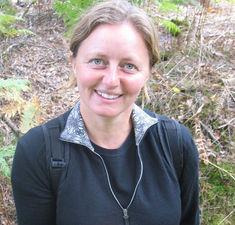
Trials at East Malling Research (EMR) have revealed that wild, solitary bees and bumblebees are vital to high-yield blackcurrant harvests and larger, more uniform berry size. This is especially important in bad weather.
Honeybees, however, were not found pollinating flowers on the nine plantations surveyed, and so play little part in the contribution to blackcurrant pollination.
The EMR team, led by entomologist Dr Michelle Fountain, has been growing Ben Gairn and Ben Hope blackcurrants in a series of 12m long flight cages. The team has been closely monitoring the success rates of different, native pollinators.
“The results are clear,” said Fountain. “With just our wild bees, we achieved maximum pollination in warm, sunny weather on our Ben Gairn trials.
“In the year of the trial, Ben Hope flowered later, during a period of poor weather with low temperatures and between 10 and 15mm of rainfall. The fruit set of the blackcurrant was up to 40 per cent lower in the open pollinated bushes compared to those which were supplemented with bumblebee nest boxes.
“This is because the poor weather made wild bees less active.”
The study has so far identified 13 species of bee foraging for pollen and nectar on blackcurrant. Fountain is now keen to see guidelines drawn up to assist blackcurrant and other fruit growers to maximise pollination levels by developing good local habitats for previously underrated wild bees.
“Good management of local biodiversity and the wider environment, plus considered use of pesticides could make all the difference to pollination levels and the quality of harvests,” she said. “Good pollination leads to well-formed, high quality fruit which must be every grower’s aim.”
EMR advice includes careful use of insecticides, especially around the time of flowering when native wild bees may be foraging within the crop. It also suggests other crop management techniques including ensuring native bees have access to the different environments they need for nesting, raising their broods and over-wintering; encouraging a wide range of wild flowers and plants on field margins; mowing flowering alleyways before applying insecticides to avoid spraying foraging bees; and nurturing sustainable hedgerows to encourage biodiversity.
“The blackcurrant trials, funded by DEFRA, GlaxoSmithKline and other industrial partners, have told us a great deal about pollination,” said Dr Fountain. “However, they have also opened up new areas of scientific challenge which we are keen to pursue to provide our fruit growers with even more information to ensure maximum pollination and quality of their crops.”



